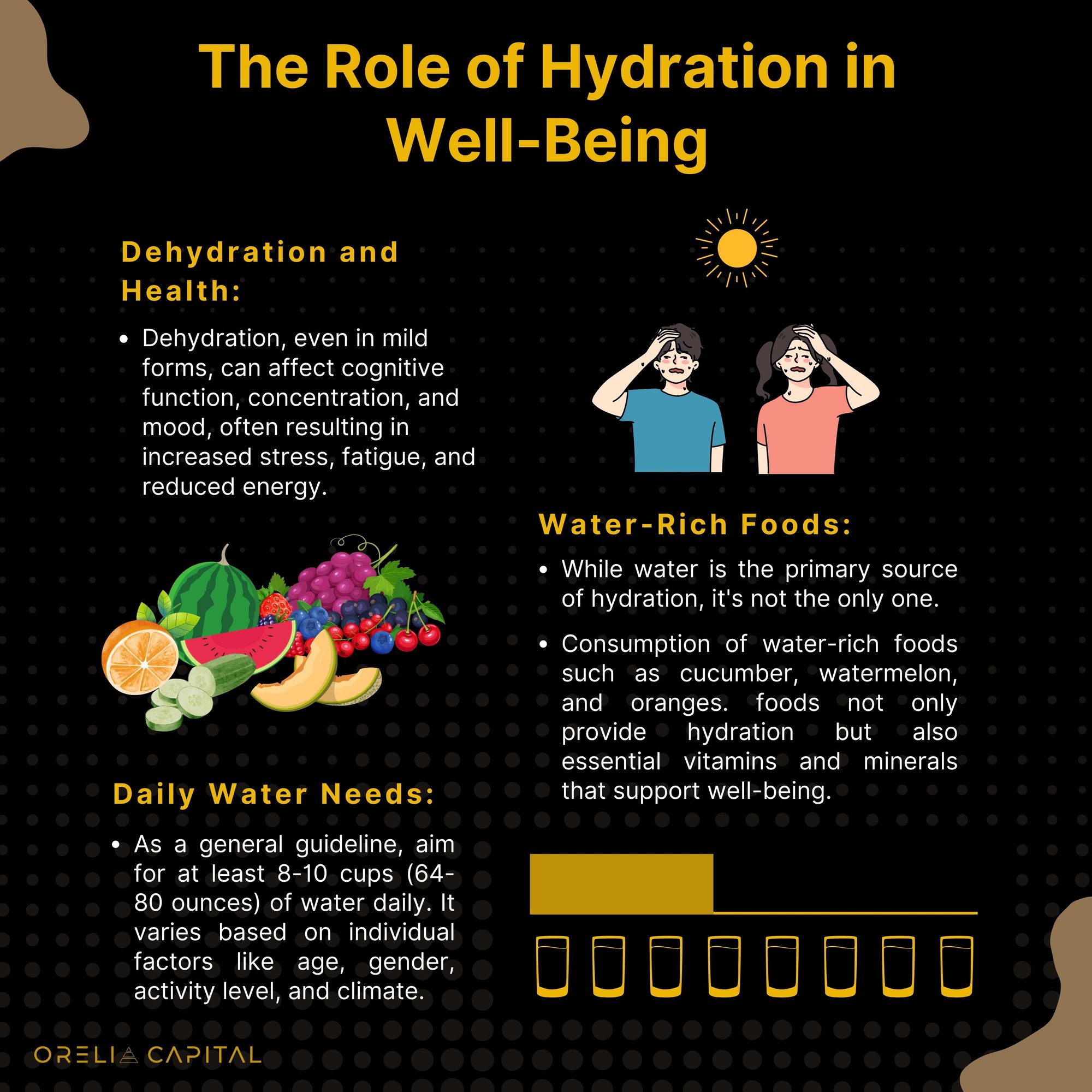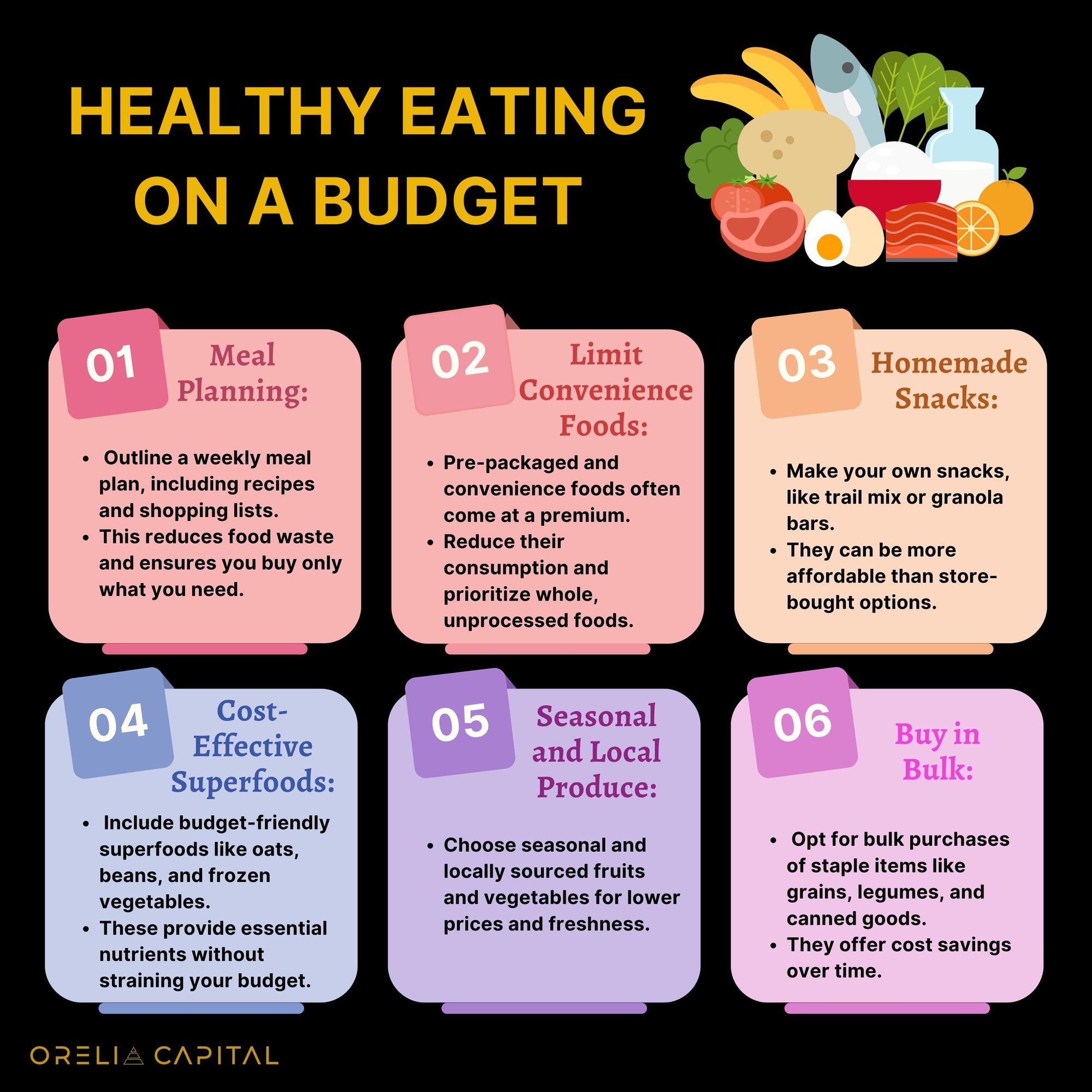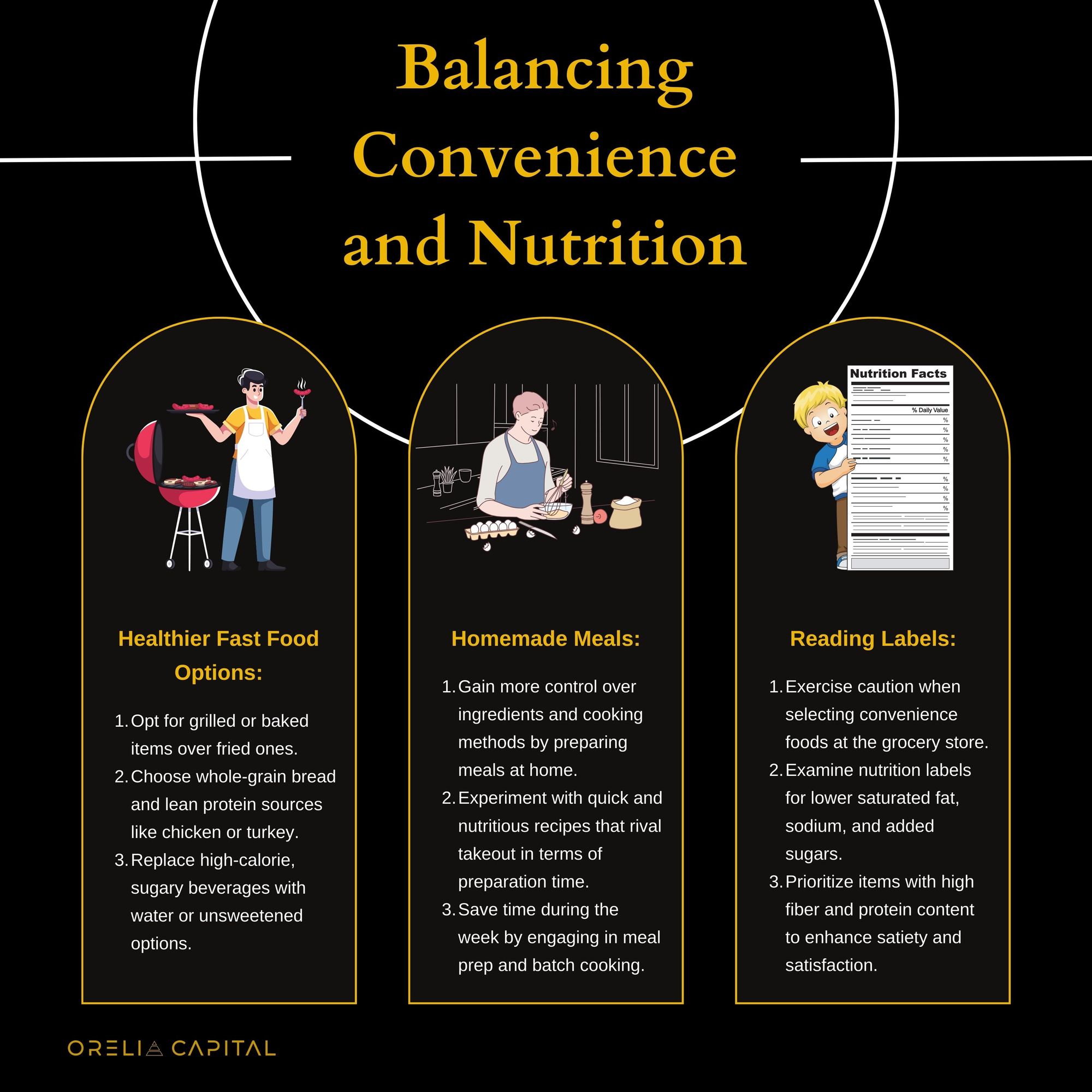Importance of Nutrition and Healthy Eating

In the world of managing money, we often hear about things like budgeting and investing to secure our financial future. But today, we're talking about something equally important: how food affects how we feel and think.
Just like we plan our finances carefully, it's essential to plan our diet. What we eat can significantly impact our physical and mental well-being. This article will explore the links between food and our mood. We'll also learn how to eat more mindfully. Nourishing your body and mind is an investment that pays off in many ways. So, let's dive into the world of healthy eating, where taking care of yourself is just as important as taking care of your money.
The Link Between Diet and Mental Health:
Numerous studies have shown a direct correlation between the type of food we eat and our emotional state.
- Key nutrients, such as omega-3 fatty acids, antioxidants, and B vitamins, have garnered attention for their role in brain health. These nutrients are vital for producing neurotransmitters like serotonin and dopamine, crucial for regulating mood and managing stress.
- Omega-3 fatty acids in fatty fish like salmon and walnuts have anti-inflammatory properties that may help protect against mood disorders.
- Antioxidants, abundant in fruits and vegetables, can help combat oxidative stress and inflammation in the brain, which are associated with mood disorders and cognitive decline.
- B vitamins in whole grains, lean proteins, and leafy greens play a key role in energy production and neurotransmitter synthesis.
To maintain good mental health, adopting a balanced diet rich in various nutrient-dense foods is essential. This balanced diet includes a colourful array of fruits and vegetables, whole grains, lean proteins, and healthy fats and profoundly shapes your physical health and mental well-being. The next time you sit down to a meal, consider how it's nourishing your body and mind.

Mindful Eating Habits: Cultivating a Nourishing Relationship with Food
- Present-Moment Awareness: Mindful eating means savouring each meal by focusing on the food's colours, textures, and flavours.
- Listening to Your Body: Pay attention to hunger and fullness cues, eating when genuinely hungry and stopping when satisfied.
- Emotional Eating Awareness: Recognize emotional eating triggers and find alternative ways to cope with emotions.
- Expressing Gratitude: Show gratitude for your food's origins and production to enhance your relationship with it.
- Small Bites, Slow Chewing: Enhance satisfaction by taking smaller bites and chewing slowly, aiding digestion and flavour appreciation.

Nutrition and Stress:
Understanding the Food-Stress Connection
Stress is a familiar companion in our fast-paced lives, and it often impacts our food choices more than we realize. Here's how nutrition and stress are closely intertwined:
Stress and Food Choices:
- In times of stress, many of us turn to comfort foods, which are often high in sugar, unhealthy fats, and calories.
- This emotional eating can provide temporary relief, but it's a short-lived fix that can lead to weight gain and poor health over time.
Stress-Reducing Foods:
- Some foods can help alleviate stress, help calm the nervous system, and regulate stress hormones.
- Antioxidant-rich foods like berries and dark chocolate, as well as magnesium-rich options like nuts and leafy greens, have been shown to have stress-reducing properties.
The Role of a Balanced Diet:
- Maintaining a balanced diet, even during stressful periods, is crucial. A well-rounded diet provides the nutrients your body and brain need to cope with stress more effectively.
- Deficiencies in key vitamins and minerals can exacerbate stress, so it's essential to ensure you're getting various nutrients from your meals.

Conclusion:
Balancing convenience and nutrition is a vital aspect of maintaining a healthy lifestyle. While the appeal of quick, ready-to-eat options is undeniable, making informed choices that prioritize nutrition doesn't have to be cumbersome. By being mindful of healthier fast food choices, cooking at home, and understanding food labels, you can enjoy both the convenience and health benefits of your dietary choices. Striking this balance supports your physical well-being and contributes to a positive eating mindset, ensuring that your food choices align with your overall health goals.

We hope you enjoyed this edition of our newsletter. If you found it helpful, please consider sharing it with others who might benefit from this information.
At Orelia Capital, we believe that feedback is a gift. Your feedback can help us improve our content and provide more value to our readers.





